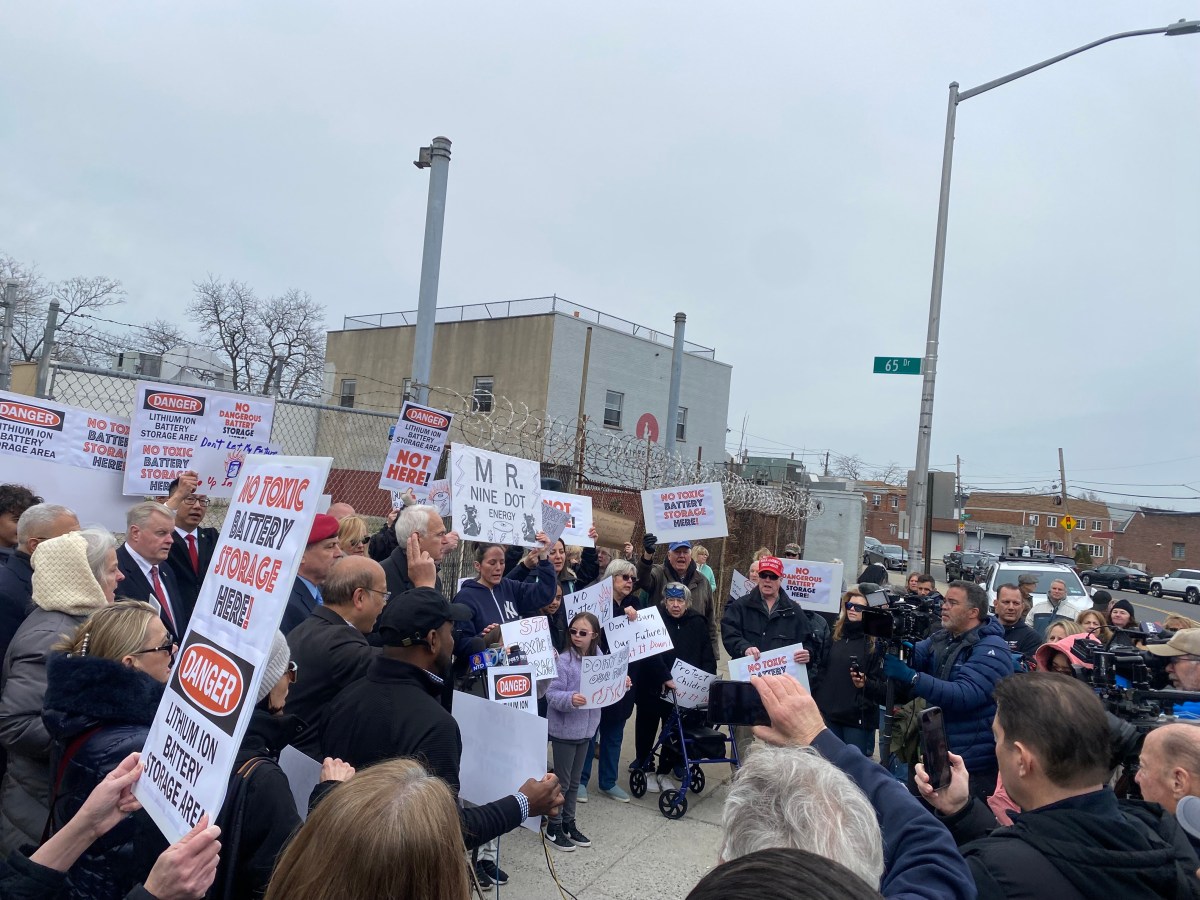While you are charging your phone at a LinkNYC kiosk this month, take a minute and soak in some poetry.
The electronic information boards will feature poems by clients of the Alliance for Positive Change, a nonprofit that helps people living with HIV/AIDS and other chronic illnesses.
For more than 15 years, the organization has offered creative writing classes that provide a safe and powerful outlet for people to express their life experiences.
Some of the work has been featured in Situations, an annual literary journal and shared through live readings.
But this is the first time the work is being highlighted using 1,500 LinkNYC kiosks around the five boroughs through a partnership with the city’s Department of Information Technology and Telecommunications in honor of National Poetry Month.
“We wanted to provide an opportunity other than support groups, something that provided intellectual stimulation,” said Sharen Duke, executive director and CEO of the alliance. “If you could utilize writing to express your fears, your trauma, your hopes, it can build self-esteem, recovery and healing.”
Rosa Velez, a former client, now helps facilitate the classes. Writing helped Velez deal with her deep depression and grief after her partner passed away while waiting for a liver transplant.
“I wanted a place where I could express what I was feeling but I wasn’t really sure what I was feeling,” Velez said. “I was hurt and angry.”
Her writing group turned into a second family. And she now strives to share that support with other clients who might be intimidated by the idea of writing poetry.
“We tell them to write from the heart,” Velez said, adding that she leaves each session with a feeling of hope.
“It inspires me to come back and teach the class,” she said.
Duke said the writing groups, which meet weekly, have been held more than 800 times since starting in 2000 and have collectively created thousands of poems.
She reached out to her friend, Gerry Gomez Pearlberg, a writer and poet, to help design the class. Pearlberg trained students, such as Velez, to be leaders and carry the program forward.
“She respected the way we were feeling and always made us feel comfortable,” Velez said. “She told us to write whatever we were feeling that day and it was OK.”
Since some of the sensitive subject matter that comes up in discussions and in writing includes violence, abuse, rape and substance abuse, confidentiality is key, Velez said.
“Whatever you say in the class stays in the class,” Velez said.
Explaining the program to funders has sometimes been a challenge because they question how it can help with HIV prevention and other health issues, Duke said. But she is able to share examples of the program’s positive impacts, for instance, one client proudly told Duke he spent his last dollar laminating his poem rather than purchasing a beer.
“When a person feels respected, feels heard, feels good about themselves, they will be in a better place to take care of themselves,” Duke said.

































